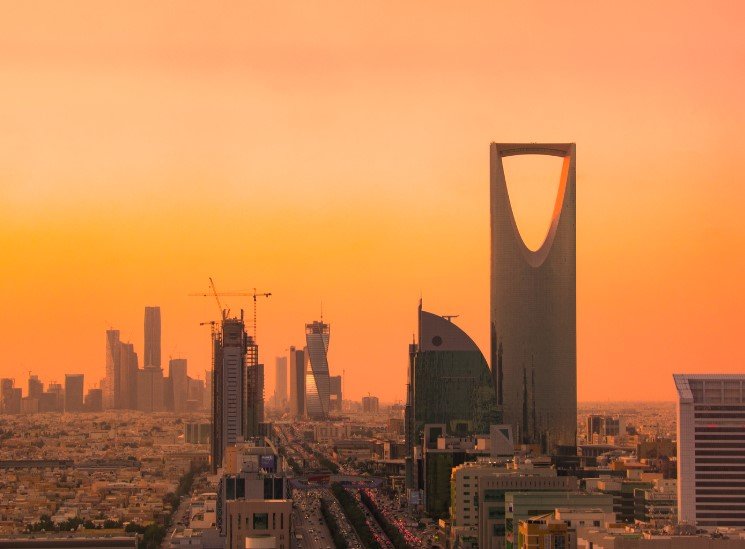Saudi Arabia’s real estate market is surging in 2025, with home sales reaching new highs even before a major law allows foreign buyers starting January 2026. Easier mortgage access, fresh housing supply, and big infrastructure spending are fueling demand from locals and Gulf nationals, pushing transaction values to SR123.8 billion in the first half alone.
Madinah Leads the Charge in Home Sales Growth
The holy city of Madinah posted the strongest growth in residential property deals during the first six months of 2025. Sales jumped 49 percent to SR3.4 billion, driven by rising interest from Saudi families seeking modern homes near key religious sites.
This boom reflects broader trends across the kingdom. More homes are hitting the market, and government programs are making it simpler for buyers to secure loans. Experts note that improved public services and transport links are drawing people to urban areas like Madinah, where family oriented communities are expanding fast.
In Riyadh and Jeddah, similar patterns emerge. Buyers are snapping up properties at a brisk pace, with many opting for villas and apartments that offer better value amid stable prices.
New Foreign Ownership Law Sparks Early Excitement
A landmark law set to take effect in January 2026 will let foreign nationals buy property in special zones for the first time. This change aims to attract global investors as part of Vision 2030, the kingdom’s plan to diversify its economy beyond oil.
While the law is months away, it is already stirring interest. High net worth individuals from around the world, especially in the Muslim community, show strong desire to invest. Surveys indicate that 84 percent of international Muslim investors are eager to enter the Saudi market.

The rules include limits on certain areas to protect cultural and religious sites. For instance, zones in Mecca and Medina may have restrictions, but other cities like Riyadh will open up more freely. This balanced approach seeks to boost foreign cash flow without disrupting local traditions.
Officials have also rolled out a digital ID system for non residents. This tool will streamline property purchases, making it easier for buyers abroad to join in.
Experts predict the law will supercharge the market. It comes as Saudi Arabia ramps up mega projects like Neom and the Red Sea developments, which promise luxury living and high returns.
Key Stats Show Housing Demand Dominates
Residential deals made up 63 percent of all real estate transactions in Saudi Arabia during the first half of 2025. The total value hit SR77.5 billion, up from previous periods, with nearly 93,700 deals closed.
This growth stems from several factors. Mortgage lending has risen sharply, thanks to lower interest rates and faster approvals. Government schemes offer subsidies for first time buyers, helping more families own homes.
Here are some standout figures from recent reports:
- Madinah: 49 percent increase in deal values to SR3.4 billion.
- Riyadh: Steady rise in villa sales, with average prices holding firm at SR1.2 million.
- Overall kingdom: 7 percent jump in transaction numbers year on year.
| City | H1 2025 Transaction Value (SR Billion) | Year-on-Year Growth (%) |
|---|---|---|
| Madinah | 3.4 | 49 |
| Riyadh | 45.2 | 8 |
| Jeddah | 18.7 | 12 |
| Total Kingdom | 123.8 | 10 |
These numbers highlight how housing leads the sector. Commercial properties trail behind, but experts expect foreign buyers to spark interest there too after 2026.
Challenges and Opportunities Ahead
Not everything is smooth sailing. Buyers must watch for new taxes under the foreign ownership rules. These could add costs for international investors, such as value added tax on purchases.
Supply chain issues from global events have delayed some projects. Yet, the kingdom’s massive funding into infrastructure, like new roads and schools, keeps the momentum going.
Looking forward, the market could stabilize as home ownership nears the government’s 70 percent target. This might cool prices in hot spots, giving buyers more options.
Gulf developers from places like the UAE are eyeing entry. They bring expertise in high end builds, which could elevate standards across Saudi cities.
What This Means for Buyers and Investors
The 2025 boom sets the stage for even bigger changes in 2026. Local demand shows no signs of slowing, with families prioritizing spacious homes in growing neighborhoods.
For foreigners, the new law opens doors to a market ripe with potential. Areas like the special economic zones promise strong rental yields and capital gains.
Investors should act now to understand the rules. Consulting local experts can help navigate taxes and zoning.
As Saudi Arabia transforms, this property surge offers chances for wealth building. Share your thoughts on how the new law might change things, and let us know in the comments if you plan to invest. Your insights could help others too.
